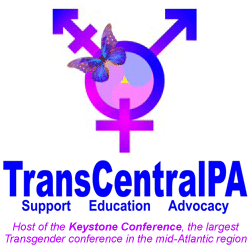Are We in Danger of Alabamafication?
I often conclude these blogs by saying that we are rejected and discriminatory laws are passed against us because of culture. But that is a simplification. How and why does culture treat us this way? And what forces culture to be this way? I got some ideas from a recent article in the Harvard Political Review entitled “Alabamafication.” Alabama is only an hour away from me and as one drives there you cross the Central Time Zone boundary so you temporarily gain an hour. I got some advice when I came here in 1998 that, in the crossing, one “just did not turn back an hour but one turned back a hundred years.” In Alabama one can readily see the forces at work that shape and use culture against us. The broader question is: “Is Alabama a model for what is happening across the United States?”
Although Alabama is part of the “Bible Belt” and touts “family values,” the state and local governments are a cesspool of corruption. All three branches of Alabama state government, as well as several cities have been shown to have corrupt officials. The governor has recently resigned for using state money to fund an affair. The speaker of the house was recently convicted of taking bribes. The chief justice of their Supreme Court has been ousted twice for misconduct. A few days ago he blamed his latest ouster on “transgendered (sic) and homosexual groups.” Before conviction, the outgoing governor installed his attorney general to replace Jeff Sessions in the U.S. Senate, only to immediately turn around and say that the purpose of his nomination was to get the former attorney general out of Alabama government because he was corrupt. The replacement governor decided that he would call a special election for the U.S. Senate seat, rather than letting the nominee serve out the remainder of Sessions’ term. In the capital city of Montgomery, corruption also appears to be rampant.
The historical background, back a hundred years, is that when the state constitution was established in 1901, moneyed interests and landowners structured the Alabama constitution to keep control of the state to preserve and enlarge their investments. They paid for the best government money could buy.
The 1901 constitution established a centralized state government that had all the power; counties and cities could do little unless they went to the state government in Montgomery and offered them something in return. What made this possible was the displacement of both black and poor white people after the Civil War who were landless and moneyless. In order to maintain control, the state was gerrymandered to favor a single political party (ironically, the Democrats). Politicians that campaigned using populist methods accomplished this. A politician who could stir up the most emotion in the populace won the day. They blamed the “War of Southern Occupation” and the Federal government for their economic woes. They used traditionalist populist arguments that if they could only return to previous times, then things would be better.
Some of the issues these politicians used have changed little since those early days but the methods are the same today. Corruption of officials is still going on and politicians still blame the Federal government for their ills (while receiving more Federal aid than they contribute to the U.S. Treasury). Gerrymandering, of course, is still used because with one party rule, that party gets to pick the boundaries. New methods of voter suppression have emerged including Voter ID laws. In order to make Voter ID laws have more impact, the state has closed 31 DMV offices in minority areas to prevent people from getting drivers licenses or a proper ID to vote. Of course, this suppresses the transgender vote as well because transgender people have difficulties getting proper sex markers on IDs as it is. Alabama requires certification of genital plastic surgery and only issues amended birth certificates, no original ones, which can interfere in obtaining jobs.
And, due to the constitution dictating central control, there is little counterbalancing political force at lower levels of the state and localities. Although Montgomery city has a non-discrimination ordinance that protects its LGBT employees, there is no such protection for ordinary citizens or government contractors. It is also not clear how the Montgomery employee protection ordinance would hold up in state court because it never has been tested.
One also needs to be aware that there is a duplicitous façade for culture in Alabama and the South — the so-called “honor system” in which gentlemen seemingly act with great consideration for others, particularly women. The duplicity is revealed in the way they treat people on economic issues. Alabama has not joined the ACA for Medicaid, leaving over 100,000 women without medical coverage. In 2015, the governor (now convicted) also defunded Planned Parenthood that provides medical testing and treatment for women as well as transgender people.
So why isn’t there outrage expressed by Alabama religious leaders about the corruption and denial of social justice. (Some actually do, notably the Unitarian Church.) Religion in Alabama is the focus of communities and has heavy influence. But in the main, the answer is that the same corrupt cultural forces abroad in the state have influenced religion. An Auburn (Auburn University is in Alabama) emeritus professor is quoted in the article. Wayne Flynt points out that religion is “a stool with four legs.” These are social ethics, personal ethics, ritual and theology. He believes that the corrupt culture has undermined social and personal ethics. Ritual is a non-starter. So what is left is theology.
Because only theology remains to religion, it must deliver theological messages to its congregations who expect it. The congregations do not want messages about social and personal ethics or social justice. Clergymen who do preach about tolerance for LGBT people fear that they will lose their congregations. It has happened several times here in Atlanta, according to people I have met in local LGBT groups. In one of these group meetings they had a panel of clergyman who spoke on LGBT issues. Someone asked them why they did not preach LGBT tolerance and acceptance and one of the clergymen answered simply “Money.” I do not think that clergymen first think about money but they do think about continuing their churches.
Churches deliver theology to support the culture and keep their congregations. For transgender people, the primary theological issues they bring up is that sex and gender are the same and that biological gender predisposition does not exist. They deny our existence and say that anyone who believes that their sex and gender are not the same is mentally deranged and delusional. Since theology is in the realm of faith and the supernatural, their arguments cannot be refuted by evidence.
It does not help that mental health professionals keep referring to “gender identity” a concept that, although not supernatural, cannot be seen, felt, or measured. Transgender critics often point this out. The term “gender identity” is derived from psychiatry (Freud and Erikson), not from the experience of transgender people. So the practitioners must provide the words to transgender people and are overjoyed when they hear them come back from transgender people. Instead of relying on objective behavior and biology, mental health professionals “salt the mine” by implanting verbalizations of “gender identity.” The theological arguments are precisely the arguments of Paul McHugh and Keith Ablow who are anti-transgender psychiatrists visible on TV and in court proceedings. However, transgender people have shown a marked ability to discard or repurpose psychiatric terms — the word “transvestite” has been discarded and the word “transgender” itself, has departed radically from its original meaning. So we can expect that “gender identity” will either become passé or will be repurposed.
The theological pronouncements that religion makes, of course, feed into the populist arguments of state politicians. Laws that discriminate against transgender people are grist for the populist mill. “Things would be alright if transgender people did not use restrooms or be protected from discrimination.” Although same-sex marriage was the scapegoat for a time, the politicians have temporarily switched over to tormenting transgender people. This is in line with the Alabama culture and its expression by religion. The anti-LGBT social arguments distract the populace while the politicians are picking their pockets through corruption.
So we come full cycle. Moneyed people have the best state government that they can buy through bribes and campaign contributions. The state government cannot be challenged by county or city governments because of its non-stratified constitution. This facilitates a culture in which personal and social ethics are ignored. Religion is oriented to ignore personal and social ethical issues. Theology is the only thing left for religion to offer and is beyond scientific debate because it is based on the supernatural. Religion becomes a defender of the corrupt culture and provides ammunition for populist arguments. This model is a meat grinder that adversely affects many groups including minorities, women and GLBT people.
So is Alabama the model for the present and future of the U.S.? There certainly are some disturbing resemblances. The Washington politicians spend more time on the phone asking for campaign contributions than they do at their jobs. They are a little more sophisticated than Alabama politicians and smart enough to not often get caught in a “quid pro quo” exchange of money for favors. The new Secretary of Health bought medical stocks and later voted for favorable legislation in Congress. It may not be illegal but it sure seems unethical. Centralized one-party control in Washington results from the purchase of state legislatures and politicians by moneyed interests who implement gerrymandering and voter suppression to elect U.S. congressmen and senators from one party. People refer to “alternative facts” and deny science about global warming, being transgender, and other issues to win votes. You can probably recognize other resemblances now that you know the Alabama model. Start with “Make America Great Again” which has the ring of Alabama populist slogans saying that we should return the past when times were good.
We need to break the Alabama models at both the state and national level by changing the culture. We need to do this in self-defense but it is also our responsibility as citizens. This situation reminds me of remarks made during the Constitutional Convention when the form of our American government was being deliberated. Someone asked Benjamin Franklin as he emerged from the deliberations “Well doctor, is it a republic or a monarchy”? To which he replied “It is a republic, if you can keep it.”
Category: Transgender Opinion, Transgender Politics











It’s not just the politicians but the church too. These independent Baptist churches in the south are the heart of the evangelical movement and have now become what is dubbed the American Taliban. See this article http://churchandstate.org.uk/2017/03/its-time-to-start-calling-evangelicals-what-they-are-the-american-taliban/. We are killing ourselves through internal strife in the community and it’s time that trans people of all stripes stick together to fight this encroaching evil. There’s no such thing as you’re not trans enough. It’s fine to say, let’s break the Alabma model, but how and who will take the lead and who will pay for the effort. It’s time to stop talking and start doing and fight fire with fire.